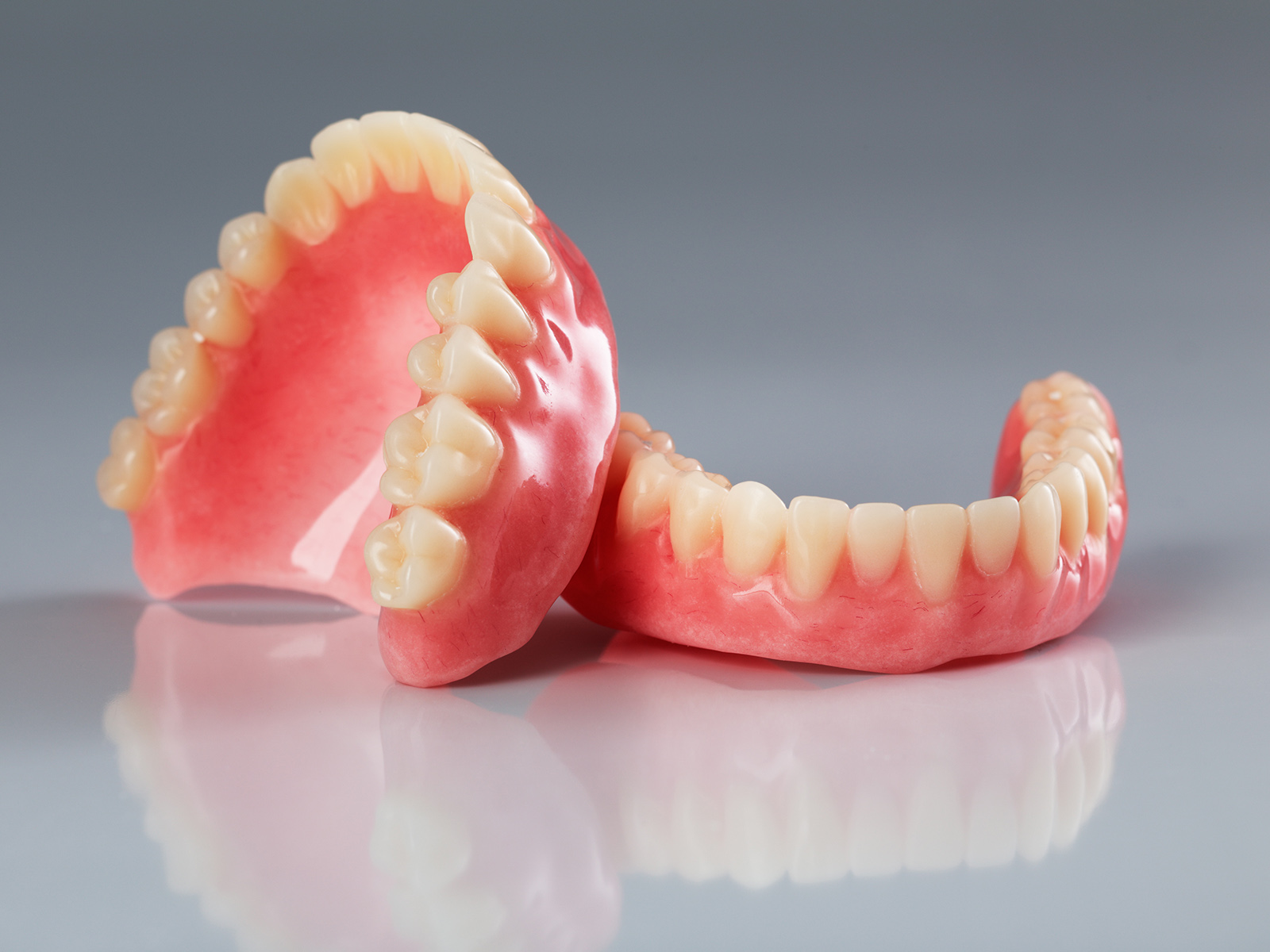Dentures have long been a trusted solution for individuals with tooth loss, providing both functional and aesthetic benefits. Dentures can restore your smile and regain confidence if you've lost teeth due to age, injury, or other oral health issues. In this comprehensive guide, we'll explore the world of dentures, delving into the various types available, how to care for them, and what to expect if you opt for this time-tested tooth replacement solution.

Understanding Dentures
Dentures are removable dental prosthetics designed to replace missing teeth and restore oral function. They consist of artificial teeth attached to a supportive base that sits directly on the gums or anchors to the remaining natural teeth. Dentures come in two primary categories:
Complete Dentures: These are used when all a person's teeth are missing. They replace an entire arch of teeth, either the upper or lower, or both. Complete dentures are custom-made to fit comfortably and securely in the mouth.
Partial Dentures: Partial dentures are used when some natural teeth remain. They consist of replacement teeth attached to a metal or plastic framework that clips onto the remaining natural teeth.
Types of Dentures
Dentures have evolved over the years; today, several types are available to cater to diverse patient needs. Here are the most common types:
Conventional Full Dentures: These are the traditional complete dentures designed to replace all teeth in the upper or lower arch. They are custom-made to provide the best fit and function.
Immediate Full Dentures: Immediate dentures are made in advance and can be placed in the mouth immediately after natural teeth are removed. While they offer the advantage of not going without teeth during healing, they may require more adjustments as the gums and bone change shape.
Partial Dentures: As mentioned earlier, these are used when some natural teeth remain. They are an excellent solution for individuals with only a few missing teeth.
Implant-Supported Dentures: These dentures are anchored in place by dental implants, providing extra stability and preventing bone loss in the jaw. They are available for both complete and partial dentures.
Overdentures: Overdentures fit over the remaining natural teeth or dental implants, providing additional stability and preserving the existing tooth structure.
The Benefits of Dentures
Dentures offer numerous advantages, making them a popular choice for those dealing with tooth loss:
Restored Appearance: Dentures can provide a natural and appealing appearance, enhancing your overall look and self-confidence.
Improved Functionality: They enable you to eat and speak more comfortably and efficiently, addressing the challenges of missing teeth.
Versatility: Dentures can replace a few teeth or an entire arch, making them a flexible option for various degrees of tooth loss.
Cost-Effective: Dentures are often more affordable than other tooth replacement options like dental implants.
Non-Invasive: Getting dentures doesn't involve surgery, making it a less invasive option for tooth replacement.
Getting Dentures: What to Expect
The process of obtaining dentures typically involves several stages:
Consultation: Your dentist will assess your oral health, discuss your options, and recommend the most suitable type of denture for your needs.
Impressions: After the consultation, images of your gums and remaining teeth are taken. These impressions are used to create custom dentures that fit your mouth precisely.
Fitting: Once your dentures are ready, they are fitted and adjusted to ensure they are comfortable and functional.
Follow-Up Appointments: Regular check-ups with your dentist are crucial to ensure your dentures fit well and are in good condition. Adjustments or relining may be necessary over time to accommodate changes in your oral structure.
Caring for Your Dentures
Proper care is essential to ensure the longevity and functionality of your dentures. Here are some tips for denture care:
Oral Hygiene: Even if you have complete dentures, it's essential to clean your mouth, gums, and tongue daily to remove plaque and prevent bad breath.
Denture Cleaning: Brush your dentures daily with a soft-bristle brush and non-abrasive cleaner. Avoid using regular toothpaste, which can be too abrasive and damage the denture material.
Soak Dentures: Remove your dentures at night and soak them in a denture cleaning solution or warm water to keep them moist and maintain their shape.
Handle with Care: When cleaning and storing your dentures, handle them with care to avoid dropping and damaging them.
Regular Check-ups: Visit your dentist to ensure your dentures fit well and your oral health is maintained.
Conclusion:
Dentures offer an effective solution for those dealing with tooth loss, whether it's a few missing teeth or an entire arch. With various types to accommodate different needs, they are a reliable option for restoring your smile and regaining your confidence. By following proper care practices and working closely with your dentist, you can enjoy years of comfortable, functional, and beautiful smiles. Don't let missing teeth hold you back; consider dentures as a time-tested solution to revitalise your smile and quality of life.
In conclusion, dentures are a versatile and effective solution for tooth loss. Whether you need a complete set to replace all your teeth or partial dentures to fill in gaps, these dental prosthetics can restore your smile, improve your oral function, and boost your confidence. With the proper care and regular check-ups, you can enjoy the benefits of dentures for years to come. If you're dealing with tooth loss, consult your dentist to explore your options and take the first step toward a brighter smile.





